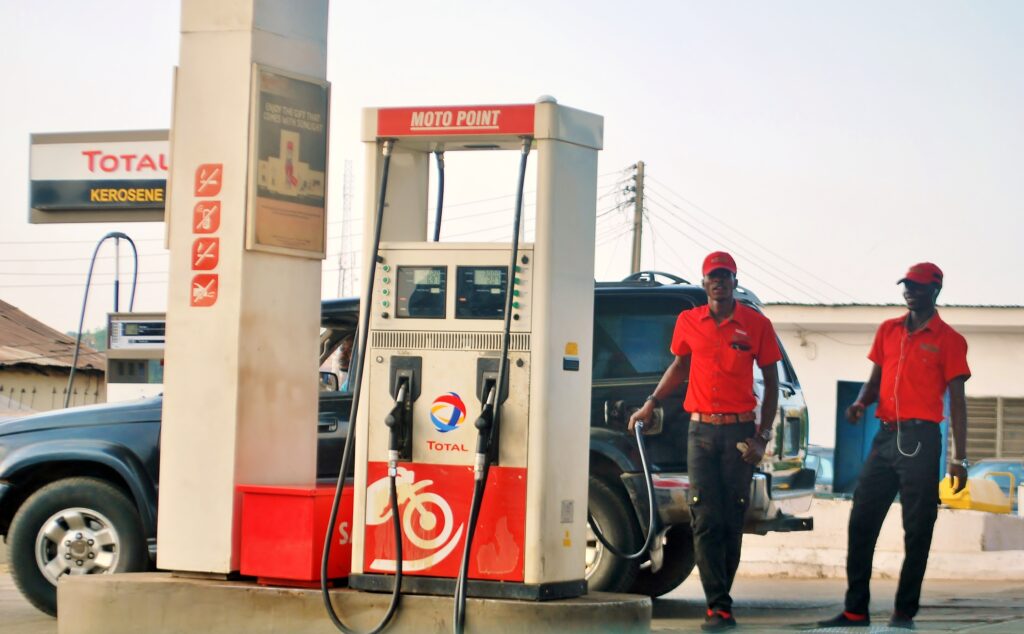Nigerians use Petrol or Gasoline as Fuel in many ways; it is used in cars and powering generators in their homes, especially in a country that is still struggling with generating reliable and sustainable power supply. We will discuss fuel subsidy in Nigeria, what it means, how much the country spends on fuel subsidy and the possible effects that fuel subsidy removal will have on the lives of Nigerians.
Fuel Subsidy Meaning
Fuel subsidy in Nigeria is a government policy that was introduced to reduce the cost of petrol (gasoline) for consumers in the country. The government reduces the cost of petrol by paying part of the price, which makes it more affordable for the average Nigerian to purchase fuel. For example, if the actual cost of a liter of petrol were to be 200 naira, the government may decide to pay 150 naira per liter of petrol to every citizen and that means the marketers will sell at 50 naira. This means the 50 naira becomes the subsidized price and not the actual price if it were not subsidized.
The rationale behind fuel subsidy is to make fuel more affordable for the masses and to reduce the impact of high fuel prices on the overall cost of living, transportation, and other economic activities in Nigeria.

History of Fuel Subsidy in Nigeria
The fuel subsidy policy in Nigeria was first introduced in 1977 by the Olusegun Obasanjo administration because of the rising oil prices as a response to the oil price crisis of 1973. The policy was initiated to cushion the effects of the high landed cost of petroleum products following the need to carry out Turn Around Maintenance (TAM) on the refineries. However, the subsidy policy became entrenched in the Nigerian economy and has since been used as a social transfer mechanism to ease the burden of high fuel prices on the masses. Since then, there have been several attempts at reforming the subsidy policy, but it has remained a contentious issue in Nigerian politics and economics.
Politics and controversies surrounding fuel subsidy in Nigeria
Over the years, Nigerian refineries were neglected deliberately to help supply crude oil to refineries outside Nigeria. Turnaround maintenance (TAM) was carried out on these refineries without a single thought of building new ones. Because the government guaranteed compensation for whatever the oil refineries produced, there was little motivation to ensure minimal or no downtime if a refining unit failed. Focus was shifted to refineries outside the country since the landed cost will always be compensated by the government, it doesn’t matter how the crude oil gets refined, and no matter the cost, the marketers know they will always be paid.
As the years go by, the cost of maintaining fuel subsidy in Nigeria kept increasing until it became glaring that the government can not afford to pay for it again. The Buhari’s government had to borrow to pay for fuel subsidy; this led the government to initiate talks on fuel subsidy removal. A few days before the end of Buhari’s regime, the President applied for an 800 million dollar loan to be distributed to some selected poor Nigerians as a palliative that will help cushion the effects of fuel subsidy removal; his regime could not remove the subsidy, and now have passed it now to the next government.
Whether the next government will remove the controversial fuel subsidy or not, depends on so many factors that only time will tell. Apart from the corruption involved in it where marketers inflate the figures in order for the government to pay, there is also the fact that many Nigerians see subsidizing fuel as the few ways to benefit from the government. There had been protests in the past (in 2012) when attempts were made to remove subsidy on fuel in Nigeria. Still, others are of the opinion that the subsidy should be removed to free the unsustainable money used in paying for this subsidy, in order to be used for development among other things.
If the fuel subsidy is removed eventually, what possible effects will this have on Nigerians?
The possible negative effects of fuel subsidy removal may include:
- A sudden surge of inflation in the economy
- Increase in cost of transportation
- Increase in cost of production and business services
- Abuse of consumers
Whereas the possible positive effects of removing fuel subsidy in Nigeria may include:
- Private sector participation in the importation of petroleum products
- Fuel subsidy removal will encourage investments in domestic refining and petrochemicals
- It will create employment opportunities in the long run
- The government will be able to fund other key sectors of the economy
- The removal of fuel subsidy will help curb air pollution in Nigeria
Related: How much does Nigeria spend on fuel subsidy?
Disadvantages of Fuel Subsidy in Nigeria
- The money paid as fuel subsidy would have been used for developmental projects such as good roads, hospitals, schools, clean water, and electricity.
- Since all states depend on federal government funding, less money will be shared with the states. If less money is allocated, there will also be less development at the state level.
- Fuel subsidy is more beneficial to those that are better off financially than those that are not. As of 2022, there are more than 63% of Nigerians living in multidimensional poverty (According to the National Bureau of Statistics). That means there are more poor people than even the middle class and the rich combined. None of these poor Nigerians can afford a generator or a car. It will be better if the money for the subsidy is used to provide functional primary health care centers, clean water, and stable electricity that industries can use which in turn create jobs.
- Because the price of petrol has been subsidized, it makes it cheaper and therefore, encourages more pollution, traffic congestion, and climate change.
One would have thought that subsidizing fuel should be of benefit but it comes with its own disadvantages as listed above.
Surprisingly, a survey carried out by the ICTD indicates that 70% of Nigerians oppose the removal of subsidies. The reason for this may likely be because of the corruption in Nigeria that has made the people have no trust in what would be done with the funds when the subsidy is removed. People feel the funds that will be available to the government when the fuel subsidy is removed will be diverted and looted which means it is better for the fuel subsidy to continue as it is one of the few ways that most Nigerians benefit from its government.
Lessons learned from fuel subsidy reforms in other countries
It is interesting to note that many other countries have been struggling with the removal of fuel subsidies. Examples of countries that have attempted to remove fuel subsidies include Indonesia, Egypt, India, and Iran. None of these countries has completely removed fuel subsidies. This is because of the economic and social impacts, particularly on the poor.
Most countries have reduced government spending on fuel subsidy but have met serious challenges and protests while attempting to completely remove subsidy. Nigeria has made efforts to reduce fuel subsidies in recent years and may possibly continue to reduce its spending on petrol subsidy. Complete removal of petrol in Nigeria may be unlikely given what has happened in other countries, and with the possible impact it may have, a gradual and partial removal of fuel subsidy is possible but complete removal for now is only left to be seen with time.
Last Updated on November 2, 2023 by Nansel Nanzip BongdapNansel is a serial entrepreneur and financial expert with 7+ years as a business analyst. He has a liking for marketing which he regards as an important part of business success.
He lives in Plateau State, Nigeria with his wife, Joyce, and daughter, Anael.
